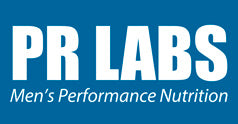Stinging Nettle
For Prostate Health
What Is Stinging Nettle?
Stinging nettle, or Urtica dioica, is an herbaceous perennial flowering plant in the Urticaceae family. It is also referred to as common nettle, burn nettle, nettle leaf, or just a nettle or stinger. The name comes from the Latin word uro, which means "to burn," because the plant's pointed leaves can cause a temporary burning sensation upon contact. However, once the leaves have been cooked, dried, or processed as a supplement, stinging nettle can be safely consumed.
For centuries, stinging nettle root has been a staple in herbal medicine for everything from muscle and joint pain to urinary issues and inflammation. The plant is packed with a variety of vitamins, minerals, fatty acids, amino acids, and polyphenols, many of which have antioxidant and anti-inflammatory properties


Stinging Nettle For Men
For centuries, people have used stinging nettle to treat many symptoms or ailments. Still, one of the most common uses for the herbaceous plant is to treat benign prostatic hyperplasia (BPH), a non-cancerous enlargement of the prostate gland.
BPH is a common condition that occurs in about 50% of men over the age of 51. As men grow older, the prostate gland may enlarge, resulting in irritative or obstructive symptoms affecting day-to-day activities. If left untreated, many men report worsening symptoms over time. The use of stinging nettle has been used to relieve or improve symptoms associated with BPH (urine stream, incontinence).
Although scientists are not entirely sure why the stinging nettle root helps to reduce BPH symptoms, they believe the chemicals within the root may have an effect on an individual's hormones, such as testosterone. There are also indications that stinging nettle acts directly on prostate cells that cause gland enlargement. When combined with other herbs such as saw palmetto, stinging nettle tends to be more effective for prostate health in men.
Are There Any Side Effects?
Generally speaking, dried, cooked, or processed nettle root is safe to consume and has very few side effects for most people. Fresh, uncooked stinging nettle leaves may cause irritation or rash because of their pointed, hair-like needles or barbs. The plant may interact with blood thinners or other medications, so it is always a good idea for men to talk with their physician before starting herbal supplements.

Why We Included it in Prost-P10x
When we were formulating our men's prostate health supplement, we made sure to include the best ingredients that have been clinically proven to promote prostate health.
Prost-P10x contains stinging nettle and other herbs, vitamins, and minerals that support prostate health to promote healthy prostate size, normal urination flow, improved urological health, and inflammation support in men.
Clinical Trials For Stinging Nettle
In recent years, more studies have examined the connection between stinging nettle and prostate health. Below is an excerpt based on clinical relevance from a study called "A comprehensive review on the stinging nettle effect and efficacy profiles. Part II: urticae radix" by Julia E Chrubasik, Basil D Roufogalis, Hildebert Wagner, Sigrun Chrubasik
“Nettle root is recommended for complaints associated with benign prostatic hyperplasia (BPH). We therefore conducted a comprehensive review of the literature to summarise the pharmacological and clinical effects of this plant material. Only a few components of the active principle have been identified and the mechanism of action is still unclear. It seems likely that sex hormone binding globulin (SHBG), aromatase, epidermal growth factor and prostate steroid membrane receptors are involved in the anti-prostatic effect, but less likely that 5alpha-reductase or androgen receptors are involved. Extract and a polysaccharide fraction were shown to exert anti-inflammatory activity. A proprietary methanolic nettle root extract and particular fractions inhibited cell proliferation. Isolated lectins (UDA) were shown to be promising immunomodulatory agents, having also anti-viral and fungistatic effects. However, despite these in vitro studies it is unclear whether the in-vitro or animal data are a surrogate for clinical effects. The clinical evidence of effectiveness for nettle root in the treatment of BPH is based on many open studies. A small number of randomised controlled studies indicate that a proprietary methanolic extract is effective in improving BPH complaints. However, the significance and magnitude of the effect remains to be established in further confirmatory studies before nettle root treatment may be accepted in the guidelines for BPH treatment. The risk for adverse events during nettle root treatment is very low, as is its toxicity. Pre-clinical safety data remain to be completed.”
Phytomedicine : international journal of phytotherapy and phytopharmacology vol. 14,7-8 (2007): 568-79. doi:10.1016/j.phymed.2007.03.014
Subscribe & Save 10% Off Your First Order
We’ll send you a coupon code for 10% off your frist order. Stay on our list and we’ll keep you updated with tips for optimal health, new product launches, sales, and more!


